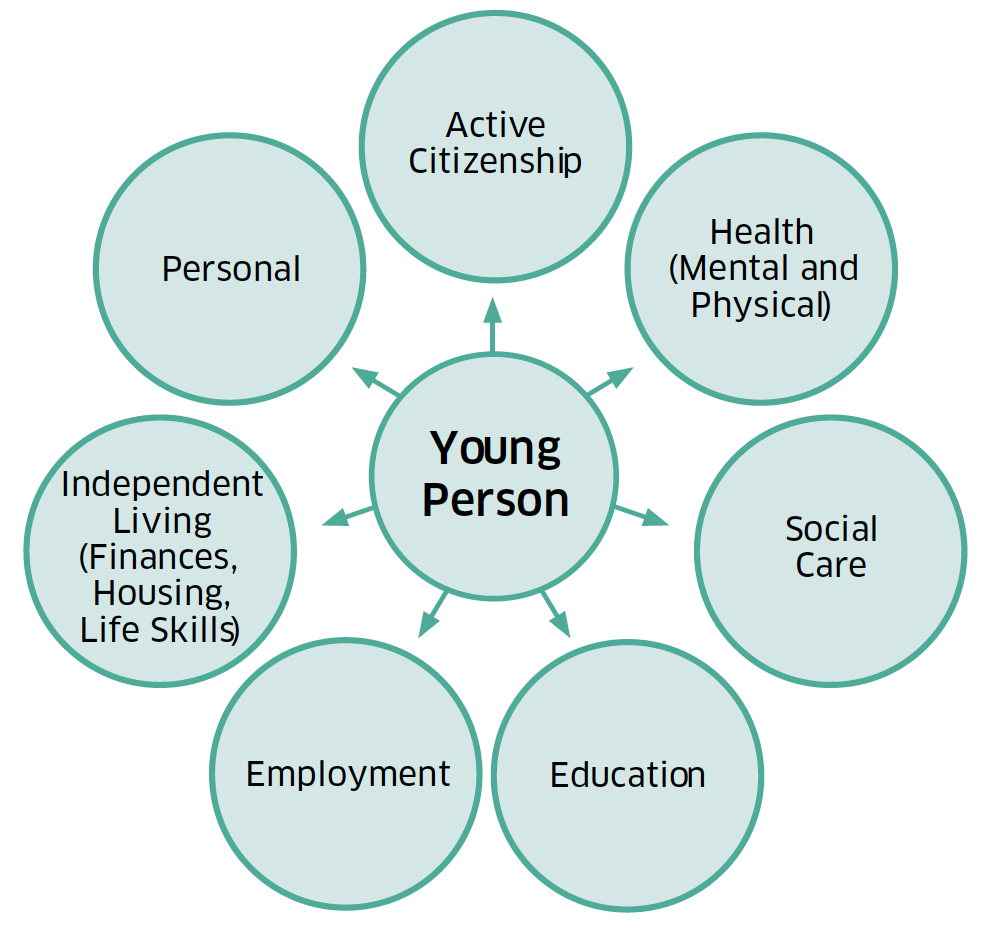Transitions to adulthood strategy: statement of intent
This statement of intent summarises the research and engagement to date on Scotland’s first National Transitions to Adulthood Strategy, and sets out what the Scottish Government has heard it should focus on in order to improve the lived experiences of transitions for Scotland’s disabled young people.
Who will the strategy be for?
Transition to Adulthood
For the purposes of this strategy, we propose the transition to adulthood will refer to the period when young people develop from children to young adults. This is not a single event, but a process which takes place over a number of years. It is a period of personal development which can involve changes in every area of life. The diagram below illustrates some of these areas.
In line with ARC Scotland's widely endorsed Principles of Good Transitions, we propose to focus on disabled young people aged 14-25 years old, however we know that the transition to adulthood will mean different things to different young people, and as such will be achieved in many different ways and timescales. We also know that this period of transition can also impact on the family or those who care for the young person.
Planning and support provided during this time should therefore be person-centred and respond flexibly to the stage of development and unique needs and aspirations of each young person.

Disabled Young People
The Scottish Government is committed to the social model of disability that says that people are disabled by barriers in society; not by their impairment or difference and, as such, the term 'disabled people' rather than 'people with disabilities' is preferred.
For the purposes of the strategy, we propose that our definition of disability is the same as that which is used within the Equality Act (2010). This means young people are said to be disabled if they have a 'physical or mental impairment that has a substantial and long-term negative effect on their ability to carry out normal daily activities'.
This reflects feedback from partners in our External Strategic Working Group who are clear the strategy should work on a pan-impairment basis, and that a lack of diagnosis should not prevent a young person accessing the support they need.
However, we also recognise that some individuals who may require additional support to make the transition to young adult life may not identify with the terminology of 'disabled'.
Contact
Email: dcyptransitions@gov.scot
There is a problem
Thanks for your feedback